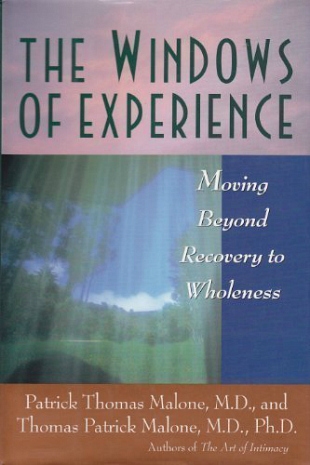"Play is any activity we engage in that has no intention and no goal. It is activity simply for the experience of being active and actively being. Seen as such, we can easily understand how so little play occurs in our society. We are full of intentions and goals. Visiting fitness centers to get in shape, going to night spots to meet someone, coaching Little League to recapture our youth, playing tennis to win the division championship are not ways of playing. They are, instead, examples of the many ways we cannot let ourselves enjoy our selfbeing.
"We cannot force ourselves to play, nor can we coerce ourselves into engagement. Putting ourselves at risk does not mean we are playing. Albert Einstein once said, 'It is a very grave mistake to think that the enjoyment of seeing and searching can be promoted by means of coercion and a sense of duty.' Such seeing and searching, whether by a physicist searching for a new particle or a child searching for a four-leaf clover, will be playful only if it is real. The true explorer is the playful wanderer, not the man on a mission. Play is always nonintentional. 'Trying to,' like 'having to,' makes it something else. We have to risk finding the new in order to be renewed.
"That truth accounts for the increasing desperation that therapists find in the Jerrys of our time. Frantic to find the passion and adventure we miss, we frenetically search for something to do. We run further and harder, jump off higher mountains, go faster, deeper, and longer. But none of it works. We forget that filling up leisure time, exhausting ourselves, and external risk-taking are not playing. Playing is re-creation, an experience of self. We must confront the monster we fear most — ourselves.
"We are re-created each time we play. That is the true risk, since we are risking whatever new us will appear each time. We risk the changes. We risk being reborn. Engagement makes us be real in our world, and in realness we always change. We risk our past to be here. We risk our future to be now. Only experiencing in the here-and-now leads to selfbeing.
"Understanding that play is the fundamental learning context has tremendous implications for our educational system. Sadly, that system now seems very out of touch with learning as opposed to informing. All teaching that is not grounded in play simply informs. We do not mean 'simply' to be negative. Being informed can be quite important. But meaningful informing is possible only when previous learning has created a place for that information to exist. Learning creates a context for information to make sense. Informing then becomes the re-experiencing of the previous learning. It becomes a confirming enhancement of what is already known. The process is innate. Natural curiosity is the basis of learning.
"Unimpeded, all humans will play. And while playing we will learn. We can trust that process if we would. The risk, of course, is that everyone would then be different. Humans would not fit into neat little boxes so they could be stacked, moved, and exchanged easily. Play is a dangerous activity. To see that, we only have to watch how serious life is in a totalitarian state. Repress play and we repress learning. Repress play and we repress growth, curiosity, and risking. Repress play and we live among mass man. Those same costs are incurred individually when we repress play in ourselves. Selficide is inevitable without play.
"Trust is the real risk. It is the platform for risking engagement in our world as a part of it. The risk of being. Education, freedom, growth, adventure, intimacy, and eventually healthy closeness all begin in the play experience. It is as the Chinese philosopher Mencius said, 'The great man is he who does not lose his child's heart.' "
